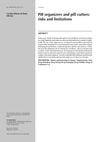Search
for
Sort by
Research
300-330 / 1000+ results
research Permanent Chemotherapy-Induced Nonscarring Alopecia and Premature Ovarian Failure
Chemotherapy caused a woman's permanent hair loss and early menopause.

research A 10 Mb Duplication in Chromosome Band 5q31.3–5q33.1 Associated with Late-Onset Lipodystrophy, Ichthyosis, Epilepsy, and Glomerulonephritis
A genetic duplication on chromosome 5 was linked to a woman's unique combination of medical conditions.
research Exploring Reference Values for Hair Cortisol: Hair Weight Versus Hair Protein
Lower tacrolimus levels (4-7 ng/mL) after liver transplant may be safe and improve graft and kidney function.

research Successful Treatment of Severe Alopecia Areata With Oral or Topical Tofacitinib
Oral and topical tofacitinib can help regrow hair in people with severe alopecia areata.

research Pill Organizers and Cutters: Risks and Restrictions on Use
Pill organizers and cutters can help with taking medication regularly but may affect the medication's effectiveness and safety.

research Connubial Androgenetic Alopecia
Hamilton scale imprecise, hair shaft diameter decreases, stem cell transplant regrows hair, ECP ineffective for alopecia areata universalis.
research A Global Survey of Ethnic Indian Women Living with Polycystic Ovary Syndrome: Comorbidities, Concerns, Diagnosis Experiences, Quality of Life, and Use of Treatment Methods
Ethnic Indian women with PCOS often have early symptoms, delayed diagnosis, and need better information and support for treatment and lifestyle management.

research Establishment of a Culture Model for the Prolonged Maintenance of Chicken Feather Follicles Structure In Vitro
Scientists have developed a method to keep chicken feather follicles alive and structurally intact in a lab for up to a week.

research Social Isolation: Main Dermatoses and the Impact of Stress During the COVID-19 Pandemic
The pandemic increased stress-related skin conditions and those affected by behavior changes.

research Spontaneous Fertility in a Male Patient with Testotoxicosis Despite Suppression of FSH Levels
A man with testotoxicosis was fertile despite low FSH levels, suggesting high testosterone may allow sperm production without FSH.

research Thyroid Disease in Alopecia Areata, Lichen Planopilaris, and Frontal Fibrosing Alopecia: A Case Control Study of 144 Patients
Alopecia is not a significant predictor of thyroid disease when age and sex are considered.

research Acne in Children: Presentation and Treatment Overview
Acne in children varies by age and severity, requires a pediatric treatment approach, and may need diagnostic evaluation for underlying conditions.

research Keratosis Follicularis Spinulosa Decalvans: Case Report
A rare genetic disease caused severe, worsening hair loss from early childhood with poor treatment results.

research Health Issues Unique to the Aging Man
Aging men face unique health issues like erectile dysfunction, prostate problems, and baldness.

research Oral Low-Dose Naltrexone in the Treatment of Frontal Fibrosing Alopecia and Lichen Planopilaris: An Uncontrolled Open-Label Prospective Study
Low-dose naltrexone may help reduce redness in certain scalp conditions.

research Hair Cortisol in Polycystic Ovary Syndrome
Women with PCOS have higher hair cortisol levels, which are linked to worse metabolic and inflammatory conditions.

research In Vitro and Clinical Evaluation of Umbilical Cord-Derived Mesenchymal Stromal Cell-Conditioned Media for Hair Regeneration
Umbilical cord-derived media is safe and effective for hair growth.

research Permanent Alopecia in Breast Cancer Patients: Role of Taxanes and Endocrine Therapies
Some breast cancer treatments, like taxanes, can cause long-term hair loss.

research Cognitive Testing of a Survey Instrument for Self-Assessed Menstrual Cycle Characteristics and Androgen Excess
The survey helps identify menstrual irregularities and excess male hormones, aiming to detect conditions like Polycystic Ovary Syndrome.
research Research Techniques Made Simple: Optical Clearing and Three-Dimensional Volumetric Imaging of Skin Biopsies
3D imaging of skin biopsies offers better accuracy but is time-consuming and can't clear melanin.

research Creating a Survey Instrument for Self-Assessed Menstrual Cycle Characteristics and Androgen Excess
In 2020, a new online survey was made to help identify Polycystic ovary syndrome (PCOS) in women, but it needs some improvements for better understanding and accuracy.
research Folliculotropic CD8+ Mycosis Fungoides Associated with Diffuse Mucosal Involvement
A rare type of skin cancer with mucosal involvement was partially treated but eventually relapsed.
research Maladaptive Hypothyroidism, or The Famine Response, After Bariatric Surgery: TSH Not the Gold Standard for Detection
TSH is not reliable for detecting hypothyroidism after bariatric surgery; FT3/rT3 ratio is better.

research Non-Invasive Method Distinguishes Chronic Telogen Effluvium From Mild Female Pattern Hair Loss: Clinicopathological Correlation
Washing test helps identify hair loss type, low iron levels significant.

research Proceedings of the RAMI Intern Section Meeting, 18th January 2014
The meeting discussed medical findings, including benefits of certain treatments for cancer and heart conditions, and highlighted issues like poor adherence to preventive measures and skill gaps among interns.
research Chronic Treatment with Finasteride Daily Does Not Affect Spermatogenesis or Semen Production in Young Men

research Therapeutic Approaches to the Management of Common Baldness
Common baldness treatments include cosmetic methods, medication like minoxidil, and surgery, but no cure exists.

research Non-Invasive Biomonitoring of Infant Exposure to Environmental Organic Pollutants in North-Western Spain Based on Hair Analysis: Identification of Potential Sources
Hair analysis shows infants and mothers in north-western Spain are exposed to environmental pollutants, with factors like diet and residence affecting pollutant levels.

research Scalp Microbiome of Healthy Women Wearing Hijab Compared to Those Not Wearing Hijab: A Cross-Sectional Study
Wearing a hijab changes the common bacteria and fungi on the scalp, possibly affecting skin health.